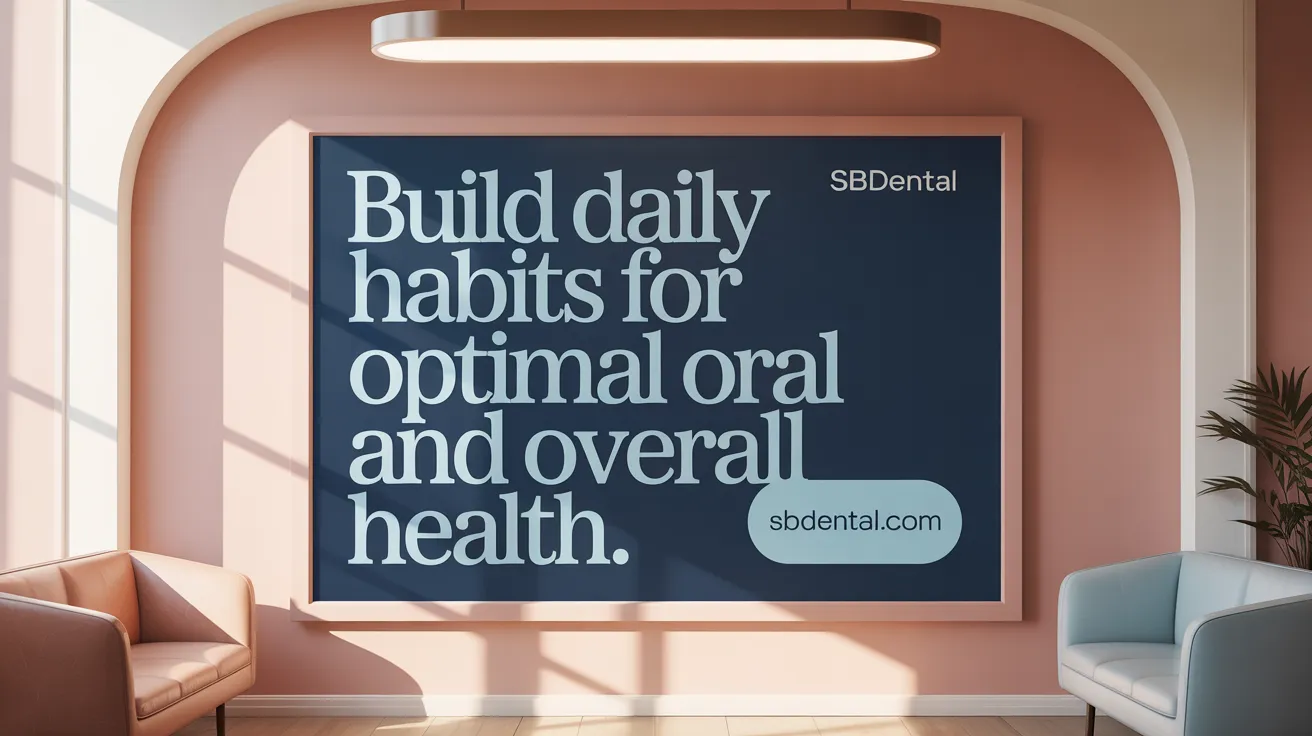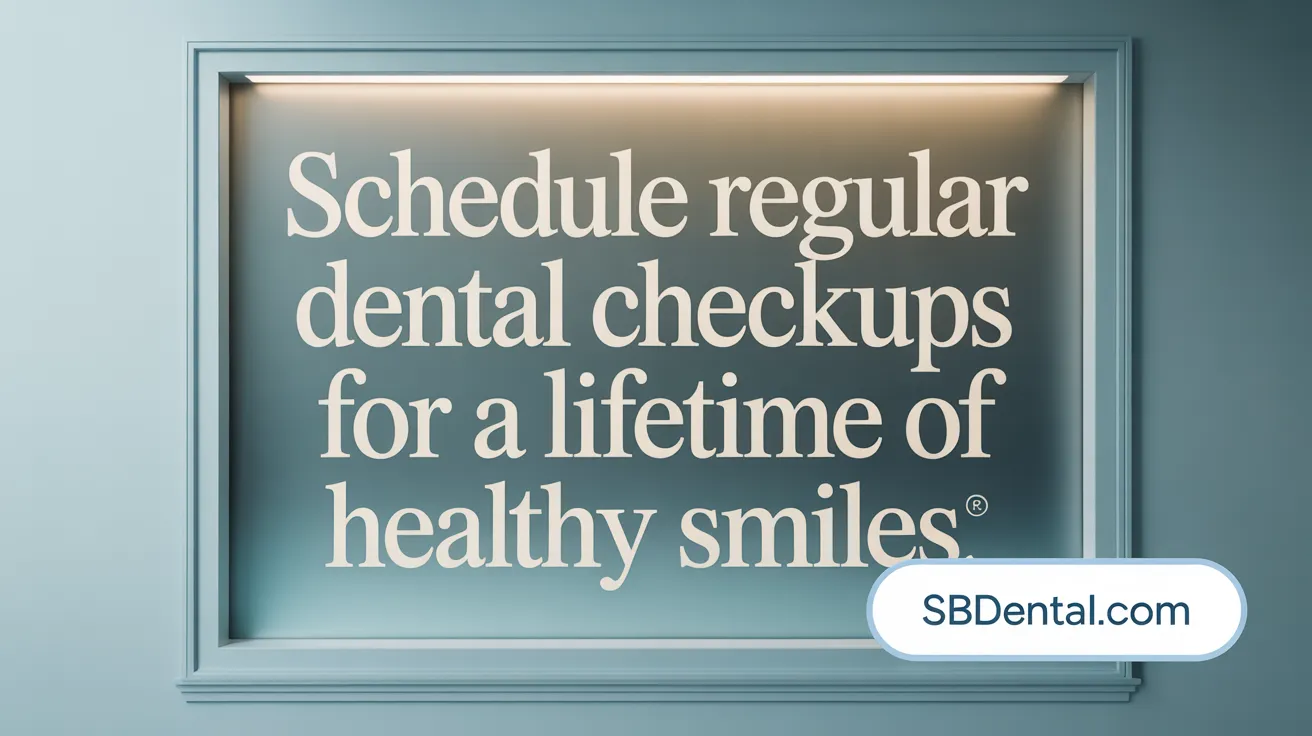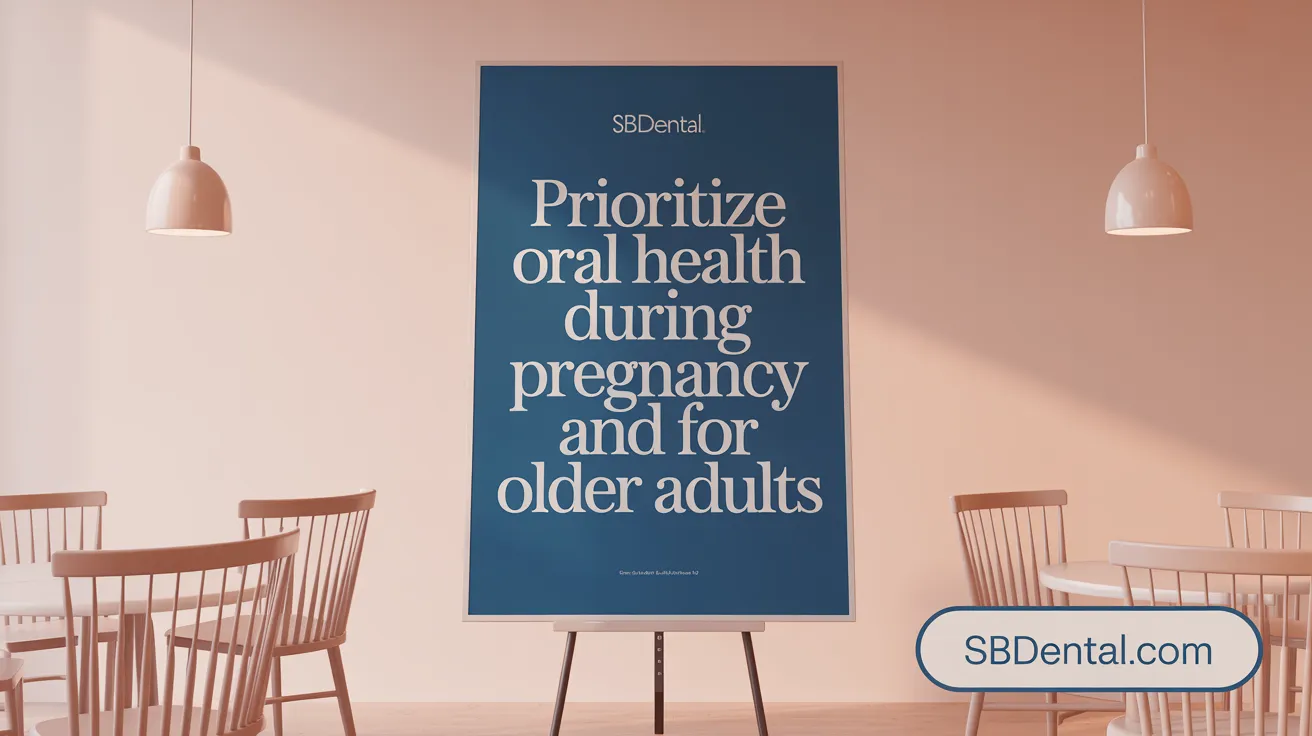The Vital Role of Oral Health in Overall Wellbeing
Understanding the Importance of Oral Health for Overall Health
Maintaining good oral health is essential not only for a bright smile but also for supporting overall wellbeing. The mouth serves as a gateway to the body, and poor oral hygiene can lead to harmful bacteria entering the bloodstream or respiratory system, increasing the risk of serious health conditions.
Common Adult Oral Health Problems
Adults frequently encounter dental issues such as cavities, gum disease, tooth loss, and oral cancer. Over 40% of adults report experiencing mouth pain within the past year, and by age 34, more than 80% have had at least one cavity. Age and chronic conditions like diabetes and heart disease can worsen oral health by increasing susceptibility to infections and gum disease.
Connection Between Oral Health and Systemic Diseases
Oral diseases do not remain isolated to the mouth; they have been linked to systemic illnesses including cardiovascular disease, stroke, respiratory infections, and pregnancy complications. Gum disease, particularly periodontitis, may contribute to these conditions by allowing oral bacteria to enter the bloodstream. Managing oral health is especially important for individuals with chronic diseases such as diabetes, as improved oral care can also aid in controlling their overall health.
Good oral hygiene routines, routine dental visits, and lifestyle choices like avoiding tobacco and managing chronic illnesses effectively are crucial steps in protecting both oral and overall health.
Establishing an Effective Daily Oral Hygiene Routine

How does daily oral hygiene support overall wellbeing?
Daily oral hygiene best practices such as brushing twice daily with fluoride toothpaste, flossing, and tongue cleaning help remove dental plaque. Plaque buildup is a leading cause of tooth decay and gum disease.
These dental issues are not isolated; they can influence systemic health by increasing the risk of cardiovascular disease, diabetes, and respiratory infections. Controlling oral bacteria through thorough hygiene reduces this risk, thus supporting overall physical health. See more on the connection between oral health and systemic health.
Brushing Twice Daily with Fluoride Toothpaste
Brushing twice a day for at least two minutes each time strengthens enamel and helps prevent cavities and gum disease. Using fluoride toothpaste is critical, as fluoride rebuilds and protects tooth surfaces. Learn about brushing with fluoride toothpaste.
Proper Brushing Techniques Including Tongue Cleaning
Effective brushing involves gentle, circular motions with medium to soft bristles angled toward the gumline to clean all tooth surfaces thoroughly. Brushing the tongue daily reduces oral bacteria, improving breath freshness and lowering infection risk. For details, see proper brushing techniques.
Daily Flossing or Interdental Cleaning
Flossing once daily removes plaque and debris in areas a toothbrush cannot reach. Interdental brushes or water flossers can be alternatives, especially for individuals with dexterity challenges. More on flossing importance and interdental cleaning.
Using Antibacterial Mouthwash
An antibacterial mouthwash, preferably alcohol-free to avoid dry mouth, can further reduce plaque and harmful bacteria. Using it after flossing ensures maximum effect. See mouthwash benefits.
Avoiding Rinsing Immediately After Brushing
Spitting out excess toothpaste without rinsing allows fluoride to remain on teeth longer, maximizing its protective benefits. This practice supports the benefits of fluoride toothpaste.
Replacing Toothbrush Regularly
Replacing your toothbrush every 3 to 4 months or sooner if bristles are worn ensures effective plaque removal and prevents bacterial buildup on the brush. Guidelines for toothbrush replacement frequency can be found here.
Managing Dry Mouth
Dry mouth, often caused by medications or aging, increases cavity risk. Drinking water throughout the day, chewing sugarless gum, and avoiding tobacco and alcohol can stimulate saliva flow and maintain oral moisture. Read more about dry mouth management tips.
Dietary Considerations
Limiting sugary foods and drinks supports oral and overall health by reducing acid production that damages enamel and promotes bacterial growth. Learn about reducing added sugar intake and healthy diet for oral health.
Consistently following these habits creates a strong foundation for oral and systemic health, preventing costly and invasive dental treatments later in life. For comprehensive oral health tips for adults, see resources from the CDC.
Regular Dental Care: Prevention, Early Detection, and Personalized Treatment

Why Are Routine Dental Visits Important?
Routine dental visits at least once a year are essential for maintaining good oral health and overall health. These checkups allow dental professionals to monitor your oral condition, perform professional cleanings to remove plaque and tartar, and provide fluoride treatments that strengthen tooth enamel and prevent decay. For adults, these visits are crucial to detect early signs of common oral diseases such as cavities, gum disease, and oral cancer when they are most treatable.
How Does Early Detection Benefit Dental Health?
Early detection of oral diseases—including oral cancer awareness—significantly improves treatment outcomes and can prevent serious complications. During dental exams, screenings help identify suspicious lesions or signs of disease before symptoms arise. This proactive approach helps protect your health and preserve your natural teeth.
What Personalized Dental Care Does Southern Boulevard Dental Provide?
Southern Boulevard Dental in Rio Rancho, NM, offers comprehensive dental services tailored to each patient's unique needs. Their services include:
- Preventive care: cleanings, oral cancer screenings, and fluoride treatments
- Restorative treatments: fillings, crowns, and bridges
- Cosmetic procedures: teeth whitening, veneers
- Orthodontic care for proper alignment
They combine professional expertise with the latest dental technologies for precise diagnosis and treatment.
What Is Unique About Their Patient-Centered Approach?
Southern Boulevard Dental emphasizes a patient-centered philosophy, creating personalized treatment plans based on individual oral health, lifestyle, and preferences. They prioritize patient education and open communication to build trust. Their office environment is welcoming and safe, following strict CDC oral health promotion programs, ADA home care recommendations, OSHA guidelines, and enhanced COVID-19 protocols to ensure the comfort and well-being of all patients.
How Does Advanced Technology Enhance Care?
The practice utilizes advanced technologies to improve treatment quality and patient experience, including:
- Digital imaging (X-rays, 3D scans) for accurate assessments
- Laser dentistry for minimally invasive procedures and faster healing
- CAD/CAM technology in dentistry enabling same-day dental restorations
These technologies reduce discomfort, enhance precision, and shorten treatment times.
Regular professional dental care combined with personalized attention and modern technology at Southern Boulevard Dental supports optimal oral health and overall wellness for the Rio Rancho community.
Oral Health Challenges in Adults: Risks and Management
What oral health challenges are common among adults?
Adults face several oral health challenges including cavities in adults, gum disease in adults, tooth loss, and oral cancer awareness. Over 80% of people will develop at least one cavity by age 34. Gum disease, particularly periodontitis, is prevalent and linked to systemic conditions such as cardiovascular disease and diabetes. Chronic illnesses like arthritis, diabetes, and heart disease increase the risk of poor oral health and tooth loss (Impact of Chronic Diseases on Oral Health, oral health and chronic disease relationship).
Age plays a significant role in oral health changes. Many adults experience dry mouth issues due to reduced saliva production, sometimes caused by medications such as antihistamines, painkillers, and antidepressants. Dry mouth increases risk for decay and infection. Receding gums and aging is also common, exposing tooth roots and complicating hygiene.
Tobacco use considerably raises the risk of oral cancers and gum disease, while moderate alcohol consumption can reduce related cancer risks. Vaccination against human papillomavirus (HPV) is an important prevention strategy for certain mouth and throat cancers (HPV Vaccination and Oral Cancer Prevention).
Effective management includes avoiding tobacco products, moderating alcohol intake, maintaining excellent daily oral hygiene practices with fluoride toothpaste and flossing, staying hydrated to manage dry mouth, and regular dental visits. Pregnant women should also be vigilant as gum disease can affect their baby's health. These measures help manage risks and maintain oral and overall health throughout adulthood.
Supporting Oral Health in Special Populations: Pregnant Women and Older Adults

Why is oral health especially important during pregnancy?
Pregnant women face increased risks of cavities and gum disease due to hormonal changes, which can affect not only their health but also their baby's well-being. Untreated gum disease during pregnancy has been linked to complications such as premature birth and low birth weight. For more information, see Oral health during pregnancy.
How often should pregnant women visit the dentist?
Regular dental visits before and during pregnancy are crucial. These appointments help prevent and treat oral infections early, ensuring both maternal and infant health. Dentists can also provide tailored advice to manage pregnancy-related oral health changes. Learn more about Dental care during pregnancy.
What oral health challenges do older adults face?
Older adults commonly experience dry mouth, receding gums, and difficulties maintaining oral hygiene due to physical or cognitive limitations. These issues increase the risk of cavities, gum disease, and oral infections. More details can be found under Oral hygiene for older adults and Managing dry mouth in seniors.
How can caregivers assist older adults with oral hygiene?
Caregivers play a vital role by supporting daily brushing and flossing routines, helping clean dentures, and monitoring for any changes in oral health. Their involvement is especially important for seniors who may struggle with self-care. See Denture care and caregiver role in oral hygiene.
What dental advice is recommended specifically for older adults?
Older adults should seek personalized dental care focusing on their unique needs. This includes managing dry mouth by staying hydrated and avoiding tobacco or alcohol, regularly cleaning and removing dentures, and attending routine dental exams for cancer screening and monitoring chronic oral conditions. For detailed guidance, visit Oral health tips for older adults.
Providing comprehensive oral care tailored to pregnant women and older adults enhances overall health and quality of life, particularly with ongoing support from dental professionals and caregivers. For additional resources, see Oral health tips for adults and Oral hygiene best practices.
Lifestyle Choices to Enhance Oral and Overall Health
Why Avoiding Tobacco Is Essential for Oral Health
Tobacco use significantly increases the risk of gum disease in adults, oral cancer awareness, enamel erosion, and tooth loss. Quitting smoking not only lowers these risks but also supports overall wellbeing by reducing systemic diseases linked to oral health and chronic disease relationship.
The Role of Alcohol Moderation
Moderate alcohol consumption is advised to reduce the risk of head and neck cancers. Excessive drinking contributes to oral tissue damage and can worsen oral hygiene outcomes.
Benefits of a Healthy, Balanced Diet
Limiting added sugars in foods and beverages helps reduce cavity formation and periodontal disease. A diet rich in crunchy vegetables supports oral and general health by stimulating saliva flow and providing essential nutrients.
Importance of Drinking Fluoridated Water
Consuming fluoridated tap water helps strengthen tooth enamel and prevent cavities. Community water fluoridation is a safe, cost-effective public health measure benefiting oral health.
Managing Dry Mouth Through Hydration
Dry mouth increases the risk of dental decay and gum problems. Drinking water regularly, chewing sugarless gum, and avoiding tobacco and alcohol help maintain saliva flow and oral moisture.
Risks Associated with Oral Piercings
Oral piercings may cause tooth fractures, wear, and gum recession, contributing to long-term oral health issues. Avoiding such piercings supports better dental outcomes.
Encouraging Healthy Habits and Smoking Cessation
Promoting cessation of tobacco use along with balanced nutrition and regular hydration enhances oral health and prevents systemic complications related to poor oral hygiene.
Lifestyle choices play a critical role in maintaining both oral and overall health. Incorporating these habits into daily routines supports a lifetime of healthy teeth and gums, especially important for communities like Rio Rancho, New Mexico, where preventive care can improve quality of life.
Integrating Oral Health into Overall Health and Wellbeing
How is Oral Health a Window to Systemic Health?
Your oral health provides important clues about your overall health. Daily oral hygiene practices, such as brushing twice with fluoride toothpaste and flossing, help control germs and prevent infections like tooth decay and gum disease. If oral care is neglected, harmful bacteria can enter the bloodstream or respiratory system, potentially contributing to systemic diseases. This makes the mouth a key gateway affecting many body systems. For more detail see Oral health and overall health and oral health and chronic disease relationship.
What Links Exist Between Gum Disease and Other Systemic Conditions?
Gum disease, especially periodontitis, has been linked to serious health issues including heart disease, stroke, pregnancy complications such as premature birth and low birth weight, and respiratory infections like pneumonia. These links highlight the importance of maintaining gum health not only to protect the mouth but also to support the heart, lungs, and healthy pregnancy outcomes. Learn more about gum disease and systemic health and the oral health and chronic disease relationship.
How Does Poor Oral Health Impact Chronic Diseases?
Chronic diseases such as diabetes, arthritis, and heart disease can both impact and be impacted by oral health. For example, people with diabetes have a greater risk of developing gum disease, and managing oral health can help improve blood sugar control. Similarly, medications for various conditions may reduce saliva flow, increasing the risk of dental decay and oral infections. See Impact of chronic diseases on oral health and Diabetes and oral health for more information. Also consult oral health and chronic disease relationship.
Why is Professional Dental Care Important for Systemic Disease Management?
Regular dental visits—at least once or twice a year—enable early detection and management of oral conditions that could exacerbate systemic diseases. Professional cleanings reduce plaque and tartar buildup, lowering gum disease risk. Dentists can also provide tailored advice addressing individual risks, such as dry mouth or chronic illness, which supports comprehensive health management. Refer to Regular dental visits benefits and Oral hygiene routine tips for guidance.
What Community Oral Health Initiatives Support Public Health in New Mexico?
In New Mexico, initiatives like community water fluoridation reduce cavities across populations by about 25%, supporting oral health affordability and effectiveness. Educational programs and preventive care efforts collaborate with healthcare providers to improve access to dental care for vulnerable groups. Promoting tobacco-free lifestyles, vaccination against HPV, and encouraging regular dental check-ups reinforce oral health as integral to overall wellbeing. Explore CDC Oral Health Resources for New Mexico specific information.
Maintaining good oral hygiene and engaging with professional and community dental health resources are vital strategies to improve not just oral health but overall systemic health outcomes in New Mexico and beyond.
Commit to Daily Oral Care for Lifelong Wellbeing
The Importance of Maintaining Daily Oral Hygiene
Maintaining good oral health begins with a consistent daily routine. Brushing at least twice a day with fluoride toothpaste and flossing once daily are essential practices to keep teeth and gums healthy. Cleaning the tongue and using antibacterial mouthwash can further reduce harmful bacteria and freshen breath. These simple daily habits help prevent common dental problems such as cavities, gum disease, and tooth loss.
Regular Dental Visits and Professional Care
Professional dental care complements home care by enabling early detection and treatment of oral health issues. Regular check-ups, usually every six months, allow dentists to monitor oral health, provide cleanings, and offer personalized advice. This is especially important for adults managing chronic conditions like diabetes, pregnant women, and older adults who face age-related oral health challenges.
Embracing a Patient-Centered Dental Experience
Each patient’s oral health needs are unique. Personalized care plans from trusted dentists help accommodate individual concerns and medical histories. Patients in Rio Rancho can benefit from dental professionals who emphasize comfort, education, and tailored prevention strategies.
Lifestyle Modifications to Support Oral and Overall Health
Avoiding tobacco products and moderating alcohol consumption help reduce the risk of oral cancers and gum disease. Drinking fluoridated tap water, managing dry mouth through hydration, and maintaining a balanced diet low in sugary foods support teeth and general wellbeing.
How Residents in Rio Rancho Can Benefit from Local Dental Care Resources
Rio Rancho residents have access to community dental services that promote preventive care and oral health education. Professional fluoride treatments, regular screenings, and caregiver support for older adults enhance oral health outcomes. Taking advantage of these resources ensures lifelong dental health and contributes positively to overall wellness.
